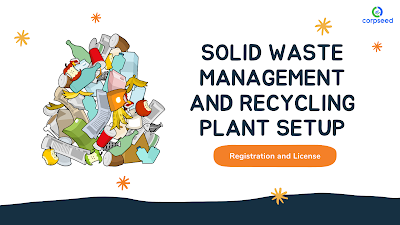Solid Waste Management And Recycling Plant Setup
Solid waste management is a broad term for the storage, collection, transport, processing, and disposal of solid wastes. It includes municipal solid waste management (MSW), industrial solid waste management, and medical waste management. The types of solid waste generated include municipal trash, construction and demolition debris, mining residue, and other forms of urban and industrial waste. Waste handling and disposal are seen as a major environmental concern due to their negative effects on the ecosystem through the land, water pollution, and air pollution.Solid Waste Management Recycling Plant Setup Process

In the treatment of solid waste, mechanical processing is the physical, chemical, and biological reduction of waste by means of machinery. Solid waste processing includes a variety of methods to reduce the volume or hazardous nature of the waste, and prepare it for recycling or disposal. Waste processing is used to both recycle useful material and destroy or remove undesirable components. Methods include:
- Mechanical separation - Physical separation
- Shredding - Grinding
- Sizing - Separating into different materials based on size
- Sorting - Separating into different materials based on characteristics such as color or density
- Grinding - Mixing with water to separate out organic materials, using air to extract fibers
- Flotation - Mixing with water to separate out organic materials, using air to extract fibers
- Magnetism - Separation based on distinctive magnetic properties in metal objects
Why it is important to manage Solid Waste?
It is important to manage Solid Waste because it affects the environment. Solid Waste has a major impact on our health and safety and also has an effect on the economy. Solid Waste is any material discarded from a particular area, that does not decompose within a short period of time, such as garbage, trash, junk, solid or semisolid waste material. Solid waste can be considered to be non-biodegradable material, which remains intact after passing through the digestive system of animals and/or the biochemical processes of plants.Investment in solid waste management has three main benefits:
- Cost savings - Reduction of unnecessary costs associated with landfills
- Benefits to public health - Reduction of the risk of disease transmission from uncontrolled wastes, resulting in improving public health.
- Reduces environmental impact - Control over pollutants reduces the harmful effects on the local environment caused by poorly managed wastes.

